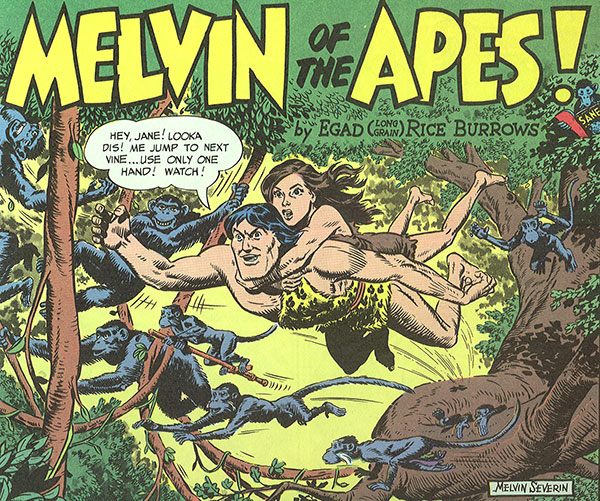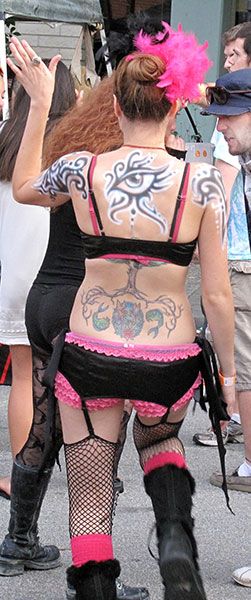I recently read a fascinating article about synthetic biology by Michael Specter, “A Life of its Own,” in the New Yorker of Sept 28, 2009. The article is online here.
As old-timers may remember there was a fad for so-called artificial life in the 1980s. Artificial life was largely about computer programs that emulated living things—such as ant colonies, flocks of birds, or growing plants. You can see my Artificial Life Lab book for more information about old-school A-Life.
Synthetic biology is different, it’s about building slippery wetware entities that might live in the real world.

Just for my own convenience, I’ll begin by posting some links to things mentioned in Specter’s article. He talks about MIT researcher Tom Knight’s BioBricks project, which involves developing a kind of open source wetware protocol so that people can fairly easily “snap together” DNA molecules of their own designs.
Knight has also posted some of his stuff on the startling site, OpenWetWare, a vast, loose, and baggy site whose 10,000+ webpages are collaboratively maintained by some 6,000+ people involved in, or interested in biotech , genomics, synthetic biology, wetware engineering, or whatever you want to call it. The idea is, I think, that it’s actually safer and more socially useful to have wetware engineering tools be open to all than to entrust them to secretive government groups.

Drew Endy, formerly at MIT but now at Stanford, is another player in the open source new goo thang. Here’s a Wikipdia page on Endy with lots more links. Specter bagged some good quotes from Endy. “My guess is that our ultimate solution to the crisis of health-care costs will be to redesign ourselves so that we don’t have so many problems to deal with.”
This reminds me of a story by Samuel Delany where people readily eat food they find on the ground—as their bodies are bioengineered to resist invasive viruses and bacteria. Actually, I don’t think this could ever work. As I’ll discuss some more below, Nature is an endlessly cunning and resourceful hive mind, and no matter how we might amp up our immune defenses, those seething critters out there will find a way to zap us. Like spammers getting around spam filters.
This said, it’s obviously the case that we ought to be able to ameliorate certain kinds of medical problems with gene tweaks.
And of course cosmetic changes will be huge. “Do these new genes make my butt look too fat?”

One of the big carrots which the synthetic biologists hold out is that we ought to be able to design some kind of microorganism that eats inexpensive crud and generates energy in some usable form or another. This does seem more feasible and less risky than nuclear fusion. Specter quotes the genomic businessman Juan Enriquez : “We’re going to start domesticating bacteria to process stuff inside enclosed reactors to produce energy in a far more clean and efficient manner. This is just the beginning of being able to program life.”
In May 31st, 2007, I wrote a light-hearted sidebar essay for the online Newsweek magazine about synthetic biology. I can’t find that essay online anymore, so I’ll just reprint it here, with this notice regarding the text (but not the images): Copyright 2007 by Newsweek, Inc. All rights reserved. Reprinted by permission.
The illustrations I’m including are drawings of mine that appeared in my novel, Saucer Wisdom, which also includes some discussion of synthetic biology.

The synthetic biology approach is onto something big—a new version of nanotechnology, which is the craft of manufacturing things at the molecular scale. Synthetic biology’s plan is to capitalize on the fact that biology is already doing molecular fabrication all the time. What might happen if we repurpose biology to our own ends?
One big worry is what nanotechnologists call the “gray-goo problem.” What’s to stop a particularly virulent synthetic organism from eating everything on earth? My guess is that this could never happen. Every existing plant, animal, fungus and protozoan already aspires to world domination. There’s nothing more ruthless than viruses and bacteria—and they’ve been practicing for a very long time.
The fact that the synthetic organisms are likely to have simplified Tinkertoy DNA doesn’t necessarily mean they’re going to be faster and better. It’s more likely that they’ll be dumber and less adaptable. I have a mental image of germ-size MIT nerds putting on gangsta clothes and venturing into alleys to try some rough stuff. And then they meet up with the homies who’ve been keeping it real for a billion years or so.

Now let’s look at the upside. Donning the funhouse spectacles of science fiction, I envision a wide range of biotech goodies.
Every child is likely to want a pet dinosaur, and this will be easily managed once the online Phido Pet Construction Kit is up and running. Of course, if you prefer something cuddly, you can design a special dog with red polka dots.

Rather than mining for ore, why not let plants use their roots to extract minerals from the ground? Sow a handful of Knife Plant grain over a dumpsite, and before long you’ll have what looks like corn—but with a cob-handled steel knife in each ear.

Why bother building houses when you can get a Giga Gourd seed? The seed is the size of a pizza and grows very fast. Push it into wet, fertile ground and stand back. In a few days you’ll have a big, hollow home with plumbing and wiring grown right into the walls, which come complete with transparent window patches.
Of course, people will want to start tweaking their own bodies. Initially we’ll go for enhanced health, strength and mental stability, perhaps accelerating the pace of evolution in a benign way.

But, feckless creatures that we are, we may cast caution to the winds. Why would starlets settle for breast implants when they can grow supplementary mammaries? Hipsters will install living tattoo colonies of algae under their skin. Punk rockers can get a shocking dog-collar effect by grafting on a spiky necklace of extra fingers with colored nails. Or what about giving one of your fingers a treelike architecture? Work ten two-way branchings into each tapering fingerlet of this special finger, and you’ll have a thousand or so fingertips, with the fine touch of a sea anemone.
It’s easy to imagine grafting an electric eel’s electromagnetic sensitivity into our brains so we can pick up wireless signals. There’d have to be an off switch, of course, but the net effect could be amazing. We’d have true telepathy, and the ability to form group minds.

As the technology of brain-to-brain contact improved, you’d no longer need to send someone every detail of a plan, a memory or a design. Instead you could send something like a mental Web link, allowing those you invite to simply view your thoughts right in your own mind.
The biggest problem with manned spaceflight is the immense mass of the requisite life-support systems and radiation shielding. What if the truly determined astronauts could transform themselves into tough, spindle-shaped pods that could sail endlessly through empty space, nourishing themselves with solar radiation and directing their journey with the exhalations of their ion jets?

One last thought. Suppose it were possible to encode a person’s memory and personality into a single, very large, DNA-like molecule. Now suppose that someone turns himself into a viral disease that other people can catch. If I were you—sneeze—oh, wait, I guess I am. Are we completely agreed?




































